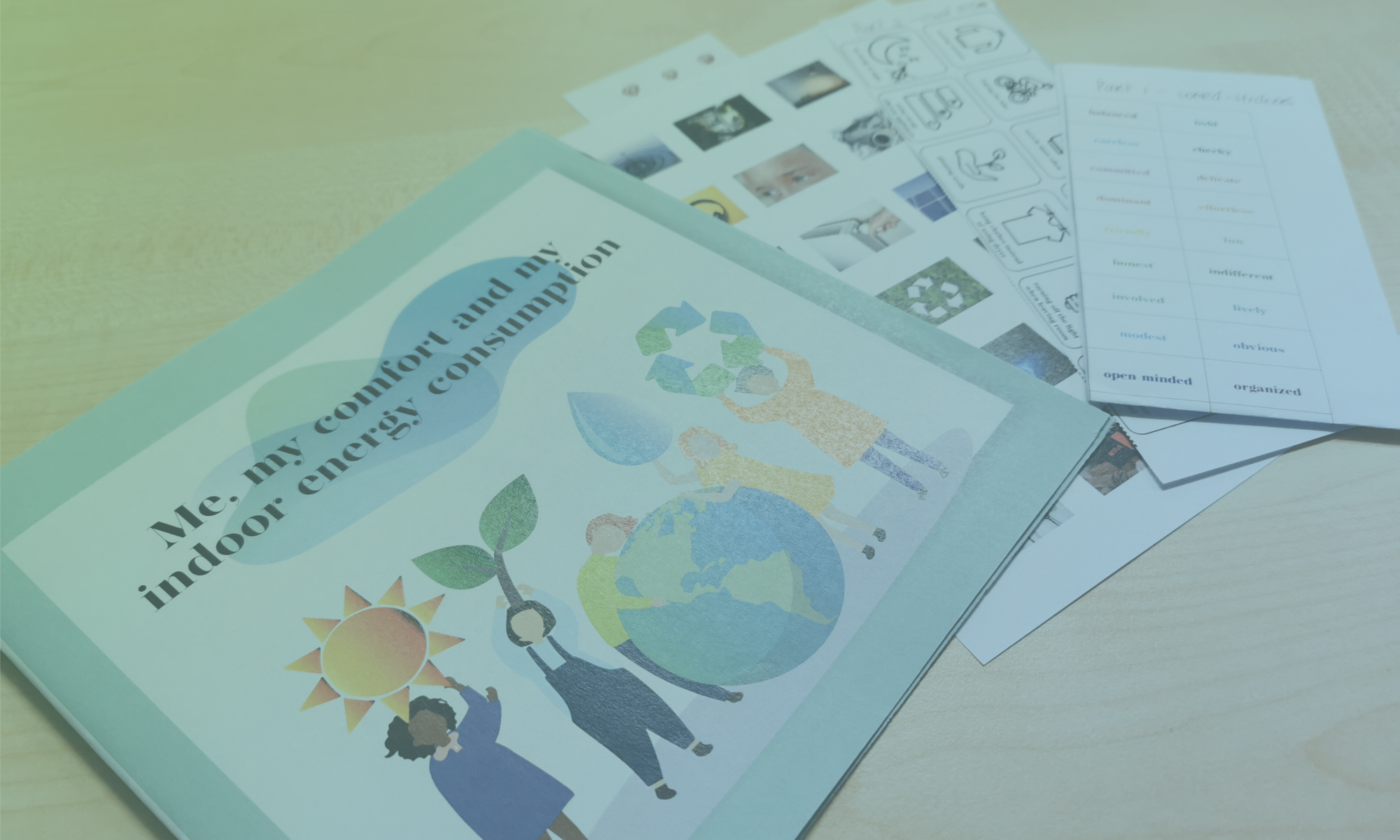Ongoing analysis sessions
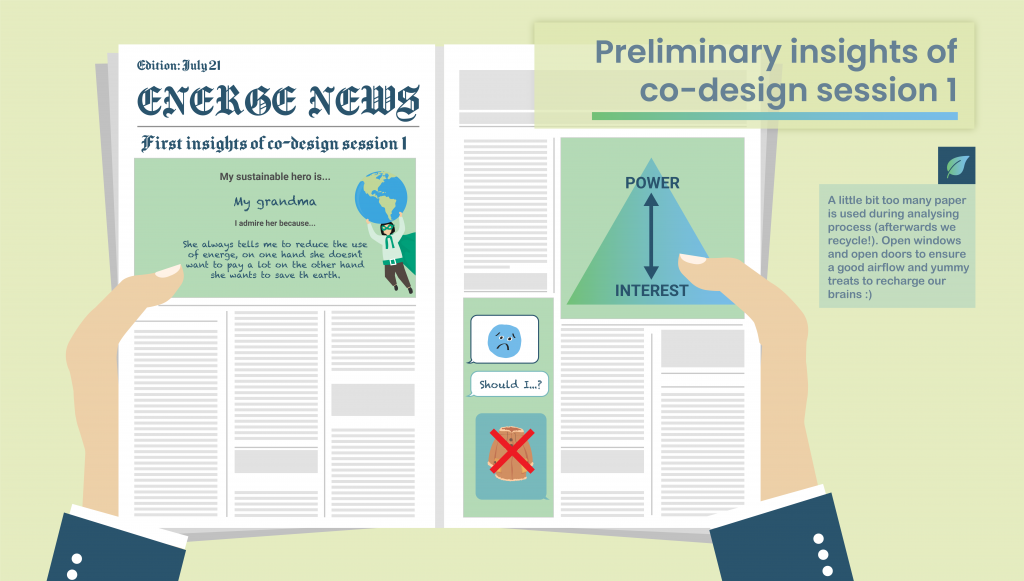
Hi everyone!! Here IDE reporting on first insights from analysis of round 1 of co-design sessions.
The collected material from round 1 has been transcribed (using the online service AmberScript) and coded by two amazing research assistants using the qualitative analysis software Atlas.ti. Many thanks to Sophie and Tippi.
Following up, we have conducted 2 analysis sessions. And there are a number of preliminary insights we’d like to share with you:
- There is a general understanding that interest and power are not in the same hands. This means that the people with interest in changing something in the classroom are not the same than the people with the power to change something in the classroom
- It is often perceived that social rules (e.g. don’t be a complainer, don’t wear your coat in class) limit the possibility to act upon discomfort in an effective manner
- Family and social media are considered effective platforms to adopt positive values towards climate change.
We will be engaging in new sessions in the coming weeks and reporting on new insights and final conclusions for the design and implementation of the ENERGE platform. Please stay tuned for more!
Activity: 07-2021-ungoing; Updated: 15-09-2021
Finished with the first round of co-design session!
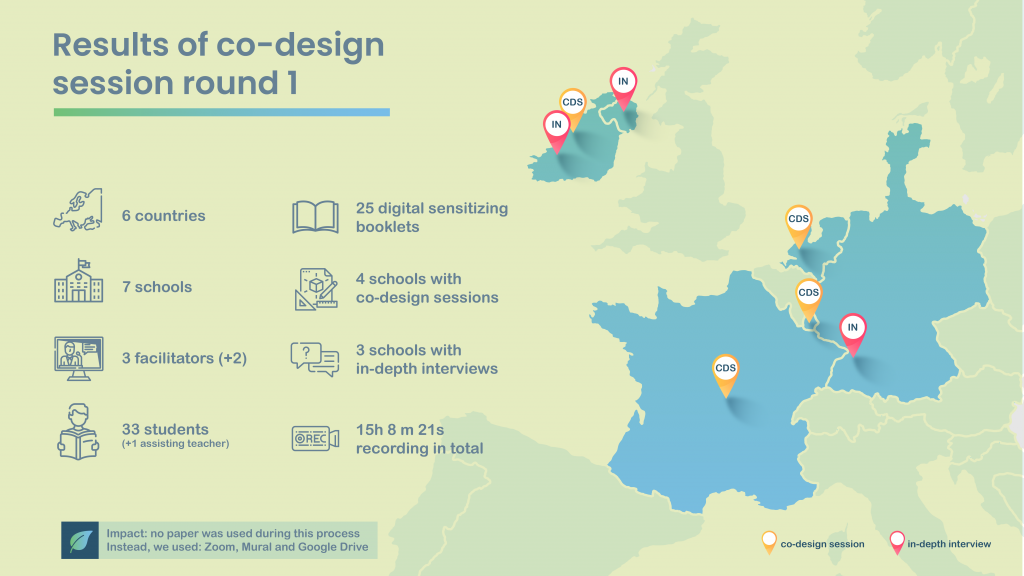
Hi!! Here the researchers from the Faculty of Industrial Design, at Delft University of Technology in the Netherlands (for short IDE), reporting on the successful first round of co-design sessions.
A 100% online experience where we worked together with 33 students from 7 secondary schools located in 6 different north European countries. By means of digital sensitizing booklets, sessions and in-depth interviews using Zoom and Mural, we engaged in valuable discussions to identify the social, environmental and organizational factors that influence the use of energy and the perceived comfort at school (and home) from a student perspective. We thank you all for your amazing participation.
We are currently kicking off the analysis of all the material collected in co-design sessions round 1 to identify meaningful themes that will be input for the development of the ENERGE platform*. Stay tuned for more updates!!
* ENERGE platform: we envisioned ENERGE platform as an informative and interactive digital system placed at the school, to support students, teachers and school administration staff to become aware of their behaviour and its impact on energy use and comfort. The platform aims to support several scenarios from becoming informed by, interact to and act upon the data provided. We envisioned the platform to enable collaboration between students, teachers and school administration staff in testing ideas and implementing initiatives to improve their current situation.
Activity: 03-2020 to 01-2021; Updated: 15-09-2021
Interviews with the ENERGE committee of Seamount College, Galway Ireland
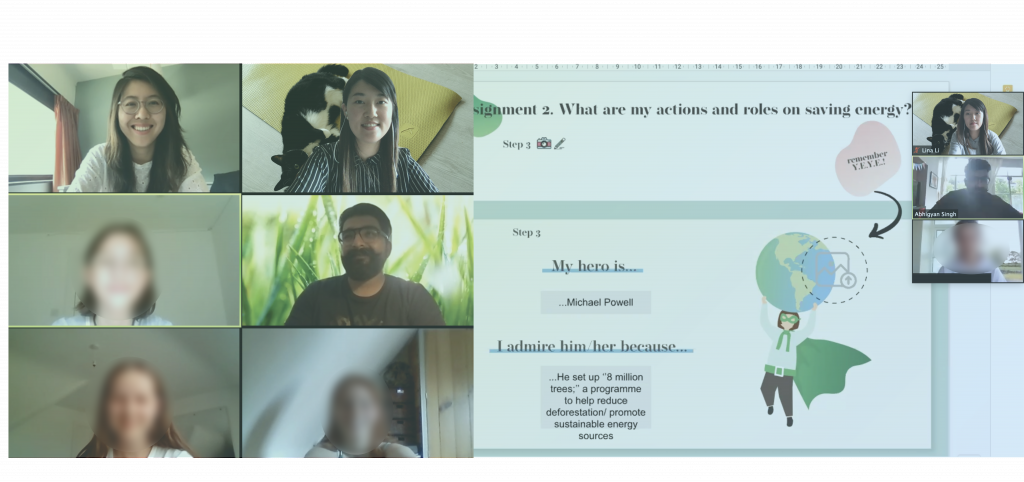
In addition to the codesign session with Coláiste Éinde, the TUDelft ENERGE team work together with the ENERGE committee of Kinvara Seamount College (Galway, Ireland). On the 2nd and 3rd June, three participants (aged 15-16) were asked to complete their digital booklet, which was followed up by individual interviews based on their booklets. Participants were invited to enrich the booklets with more stories about their practices and values regarding energy and personal comfort. These interviews resulted in fruitful conversations between the ENERGE committee and the TUDelft ENERGE researchers.
Activity: 02/03-06-2020; Updated: 15-06-2020
Co-design session with Coláiste Éinde from Galway, Ireland
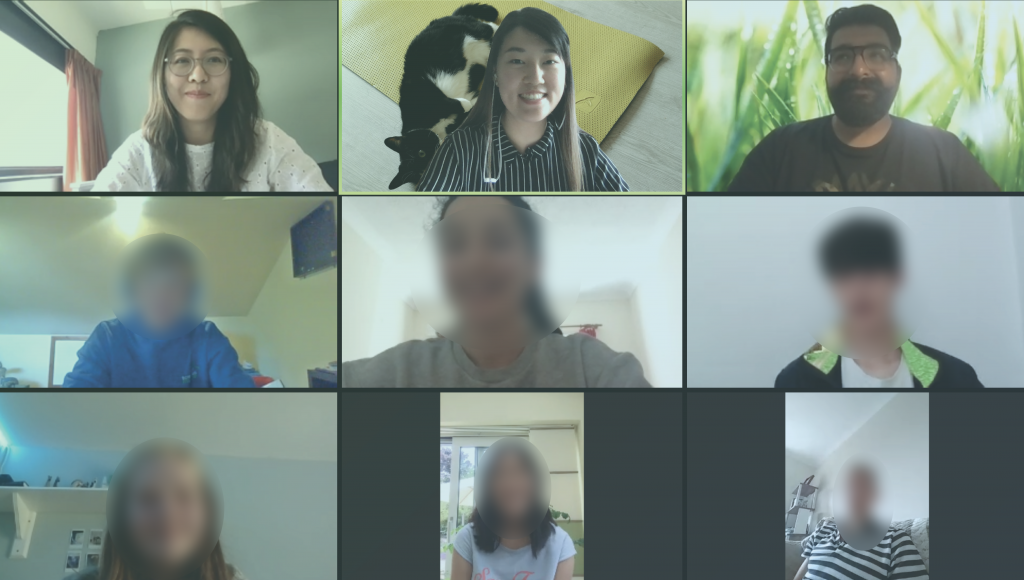
On 2nd and 3rd June, the TUDelft ENERGE team held their first Europe-based co-design session with the ENERGE committee from Coláiste Éinde (Galway), Ireland. The entire session was facilitated by the use of Zoom and Mural. In total, five secondary students (aged 13-17) discussed with the ENERGE their experiences with energy, personal comfort and energy-based practices. The entire codesign session was split into two parts: 1) a debriefing meeting a day before the co-design session, involving a training activity to familiarize with Mural and an ice-breaker activity, 2) the codesign session itself. The sessions provided the TUDelft ENERGE wonderful and useful insights. Everyone was surprised that the time went by this quick.
Activity: 02/03-06-2020; Updated 15-06-2020
Co-design session with the ENERGE committee of Haganum Gymnasium
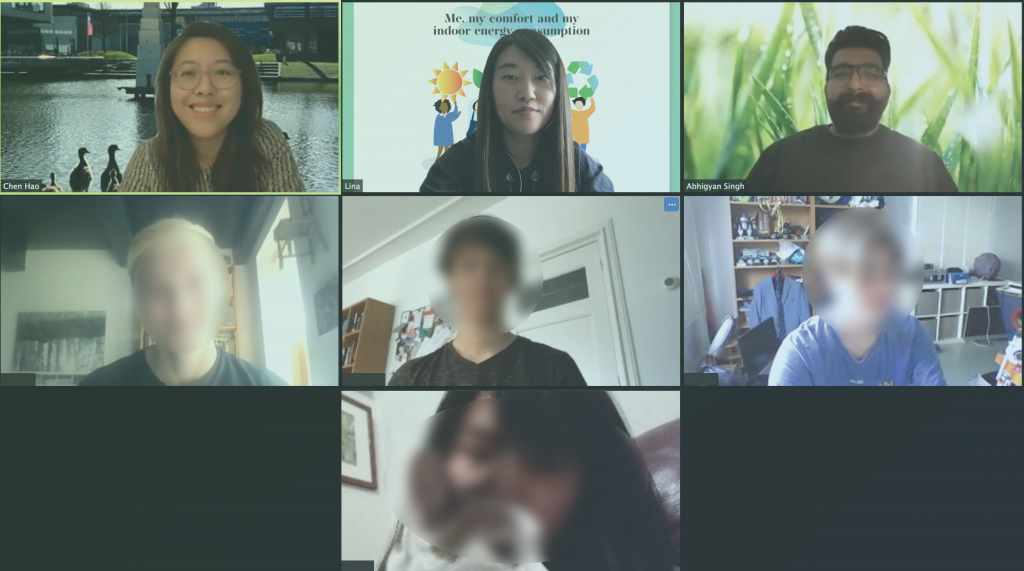
On 18th and 19th May, the TUDelft ENERGE team held an online debriefing meeting and a co-design session with the secondary school Haganum Gymnasium, the Netherlands. We chose the tool ‘Zoom’ for communication in combination with the creativity tool ‘MURAL’. Due to the pandemic in this challenging time, the team worked hard and optimized the co-design session to the online environment. In total, four secondary students (aged 15 to 18) participated in this study. Participants were asked to enrich their personal experiences regarding interactions with energy through their own eyes. This is made into an acronym Y.E.Y.E (Your interactions with Energy through Your Eyes) to invite them to tell their own personal stories. The TUDelft ENERGE team got great insights regarding their interactions with energy, their comfort and everyday experiences.
Activity: 18/19-05-2020; Updated 15-06-2020
Co-design pilot study at OSG Hugo de Groot
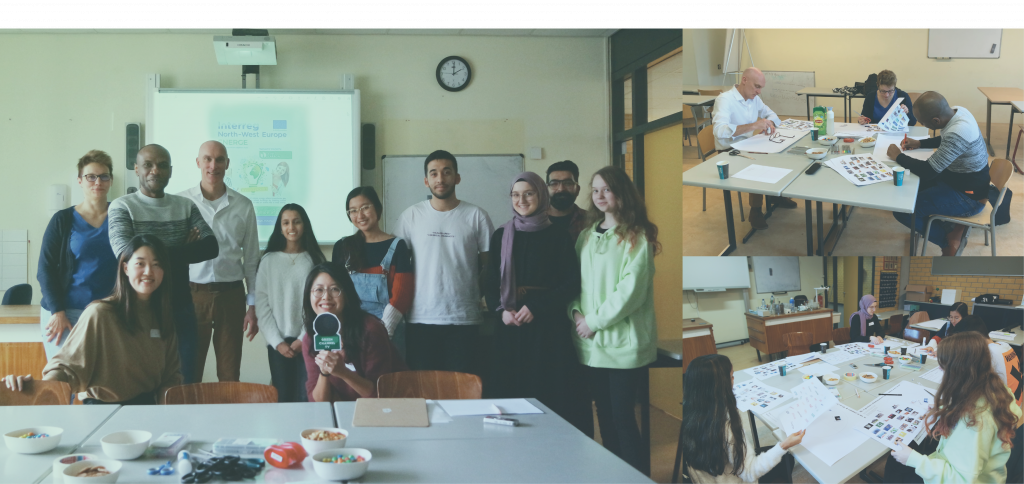
For the second pilot study of the developed co-design session, the ENERGE team involved the ENEGRE committee from OSG Hugo de Groot secondary school in Rotterdam on 10th March, The Netherlands. In total, three teachers and five secondary students (aged 15 to 17 years) participated in the pilot study. The ENERGE team consisted of three researchers. The goal of the second pilot study is to evaluate the clarity and feasibility of the assignments in the sensitizing workbook and the first co-design session. The teachers and secondary students were separated during the pilot study, each facilitated by an ENERGE researcher. The session participants were asked to share their everyday experiences on energy use and their comfort. In the end, both groups provided their opinions and feedback on the session. This resulted in great insights for the ENERGE team. The involved ENERGE committee found the process of co-design educational and fun. For the Dutch article regarding this co-design activity written by the OSG Hugo de Groot secondary school, see here.
Activity: 10-03-2020; Updated: 09-06-2020
Industrial Design Engineering Master Day
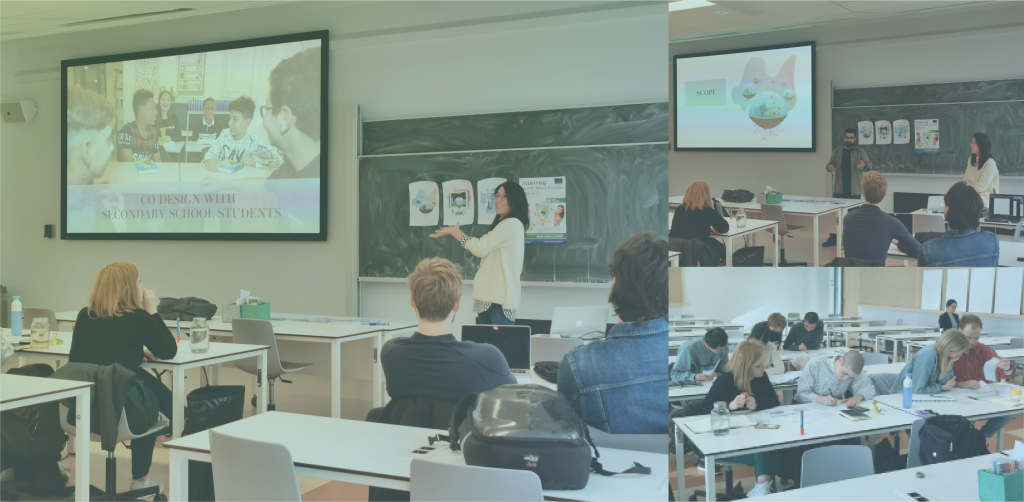
The IDE Masterday is an event for researchers to present research to IDE new Master students. Ten Industrial Design Master’s students from Delft University of Technology joined the pilot study on 11th February 2020. The developed co-design materials were piloted with these Master students. They were considered as design research experts to give feedback on the contents, use of language, and the look & feel of the co-design materials. The pilot study began with a brief lecture that introduced the objective of ENERGE project, the goals of piloting studies in general, and the aim of the co-design. The Master students provided feedback based on the criteria card that was provided by the ENERGE team. In the end, they shared their feedback in a Q&A discussion.
Activity: 11-02-2020; Updated: 07-05-2020
